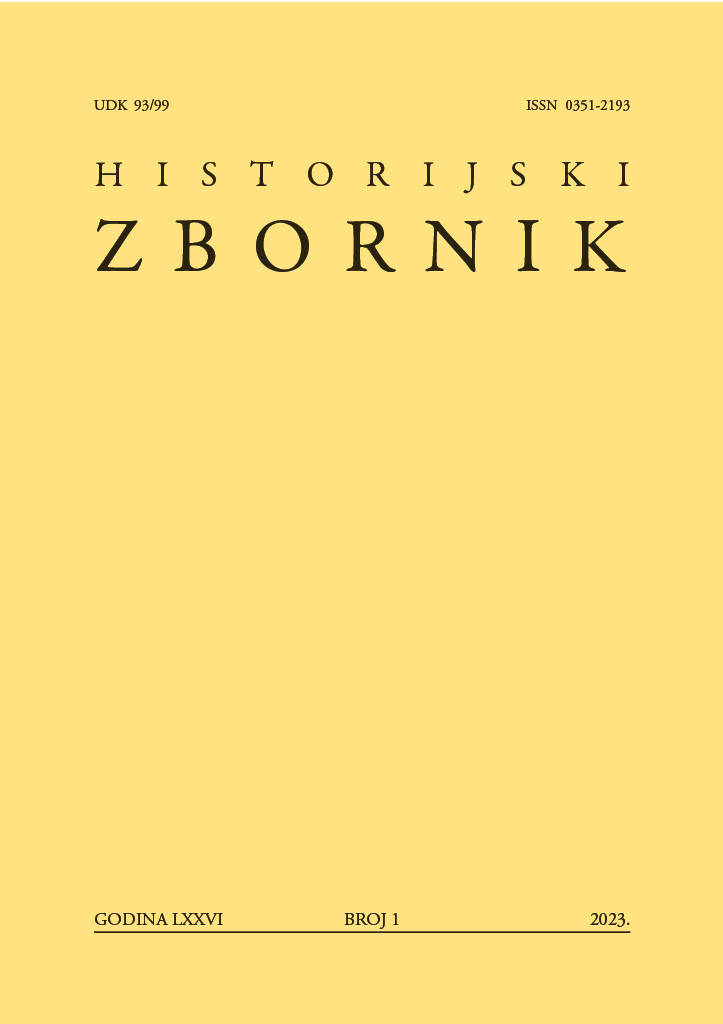Aktualizacija povijesnoga nasljeđa i sportskih korijena Hrvatskoga nogometnog kluba Rijeka
DOI:
https://doi.org/10.59412/hz.76.1.2Ključne riječi:
Rijeka; povijest sporta; Kraljevina Italija; FNR Jugoslavija; nogomet; US Fiumana; FD KvarnerSažetak
Tijekom 20. stoljeća grad Rijeka doživio je mnogobrojne državno-pravne promjene našavši se u nekoliko državnih tvorevina, od kojih je većina imala autoritarne značajke. Društvena i politička previranja odrazila su se u svim segmentima gradskoga života. Ovaj rad usmjeren je sportskoj dimenziji problematike suživota u višekulturnoj sredini. Propituje se odnos politike, društva, sporta i nacionalizama na prostoru Kvarnera i motri u kojoj je mjeri nogomet upisan u povijest Rijeke. Nastoji se preispitati poveznica između HNK Rijeka i kluba CS Olimpia koji je osnovan 1906. godine da bi se 1926. fuzionirao s CS Glorijom u Unione sportiva Fiumana. Problematizira se teza o njihovoj istovjetnosti te odgovara na pitanje jesu li klubovi koji funkcioniraju u gradu u prvoj polovici 20. stoljeća izravna preteča današnjega HNK Rijeka. Povijesni je pregled retrospektiva minulih zbivanja na sportskom borilištu i izvan njega. Fokus teksta je na dvama razdobljima: razdoblju Kraljevine Italije i razdoblju Federativne Narodne Republike Jugoslavije.
##submission.downloads##
Objavljeno
Kako citirati
Broj časopisa
Rubrika
Autorska prava

Ovaj rad licenciran je pod Creative Commons Attribution-NonCommercial 4.0 International License.
- Nositelji autorskih prva su izdavač Društvo za hrvatsku povjesnicu i autori. Historijski zbornik je časopis u otvorenom pristupu. Sadržaj časopisa u cijelosti je besplatno dostupan. Korisnici smiju čitati, preuzimati, kopirati, distribuirati, tiskati, pretraživati ili stavljati poveznice na materijal te mijenjati, preoblikovati i prerađivati materijal ili ga koristiti na druge zakonite načine, sve dok odgovarajuće citiraju izvornik, sukladno Creative Commons licenci CC BY-NC. Radove objavljene u Historijski zbornik dozvoljeno je pohranjivati u institucijske i tematske repozitorije uz osiguravanje poveznica na web stranice časopisa i Hrčka. Časopis autorima ne naplaćuje objavu radova. Uredništvo ne odgovara za navode i gledišta iznesena u pojedinim prilozima.

